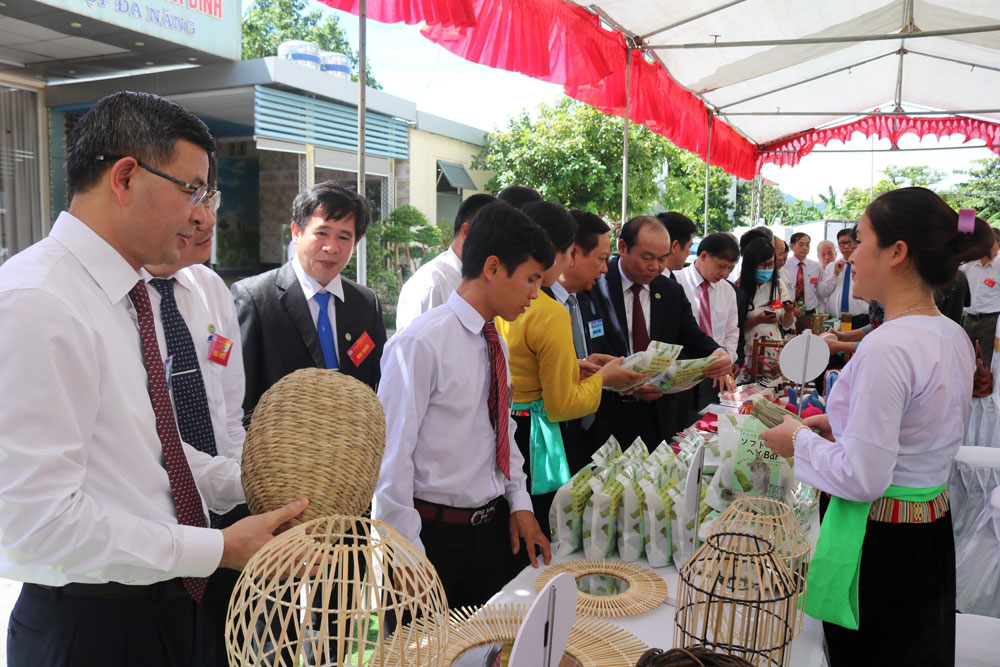


 Thanks
to product diversity, revenues of local cooperatives are on the rise.
Thanks
to product diversity, revenues of local cooperatives are on the rise.
In the 2015 – 2020 period, Hoa Binh saw the establishment of 117 cooperative groups, 297 cooperatives, and one cooperative association. Meanwhile, 172 cooperatives were dissolved and 53 others were transformed into cooperative groups and businesses under the 2012 Law on Cooperatives. Local cooperatives have step by step reformed their operations and grown in scale and revenues. The cooperatives paid attention to investing in production technology and equipment, market research, and actively participated in supply chains and the One Commune One Product programme. As a result, many have been able to improve productivity and product quality, create more jobs and increase income for members.
Now, 65 percent of the local cooperatives are ranked as "good”, 27 percent "average”, and only nine percent "weak”.
In 2020, the average revenue from goods and services of local cooperatives stood at nearly 3.3 billion VND each, up 153.45 percent compared to 2015, with the average profit, labour income, and number of members per cooperative increasing 27.57 percent, 60 percent, and 42.74 percent, respectively, in the five-year period.
The workforce of local cooperative has become younger, while the proportion of cooperative managers with high qualifications has risen. By the end of 2020, there were 40.71 percent of cooperative managers holding college degree, up 35.71 percent from 2015.
However, the local collective economy still faces a series of shortcomings, including their small or micro scales, low productivity and competitiveness, limited technological knowledge, and lacking of capital.
In the 2021 – 2025 period, the collective sector is expected to maintain an annual growth at between 10 and 15 percent, with value chain linkages formation forecast to boom. It will continue to make significant contributions to promoting socio-economic development, ensuring security and social order, building new-style rural areas and sustainably reducing poverty in Hoa Binh.
The collective economic sector, particularly cooperatives, has a great demand for human resources with technical expertise, new science and technology, trade promotion, and credit to develop and expand production and business scale. Besides their own resources, resources mobilised from the market and support from the State are much needed./.